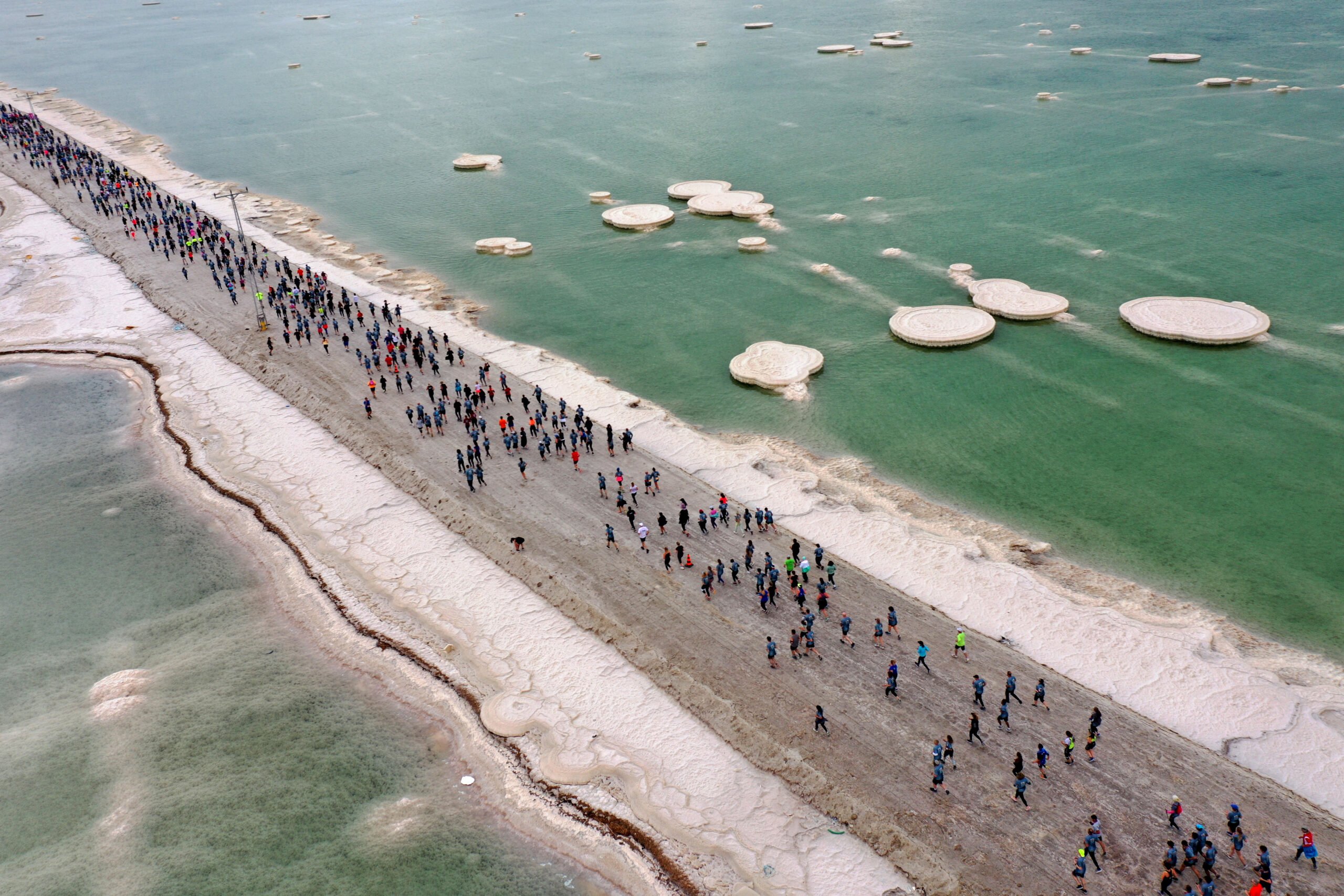
Cross-border streams between Israel and Palestine
Within Israel, the West Bank and the Gaza Strip, there are 15 streams that cross the Palestinian/Israeli Green Line. Twelve of these are major streams that flow year round in a westward direction towards the Mediterranean Sea. The other three flow east to the Dead Sea or the Jordan River. All of them originate in watersheds governed by the Palestinian Authority, or in lands that are outside Israeli jurisdiction, and then flow into Israel.[1] At least part of each of these streams can be defined as highly polluted, posing a health hazard to users, endangering flora and fauna, and unfit for recreational or consumptive uses.
In the last few years, the economic and social values of these streams for ecosystem services, recreation and urban amenities have been recognized. With significant funding from the Israeli government, reclamation has resulted in better water quality and the return of species that had been eradicated. For example, the Ministry of Environmental Protection has funded so-called water for nature projects aimed at restoring and reclaiming natural streams such as Ein Afek and Ein Zahav. Further clean-up of cross-border streams has been suggested as an opportunity for Israeli-Palestinian cooperation.
Water in the agreements with Jordan and Palestine
In 1994, Israel signed a peace treaty with Jordan. Water was an important part of this treaty. Since 1996, and according to the peace agreements between the two countries, Israel has committed to sell about 55 MCM of water a year to Jordan.
In addition, in accordance with the agreements signed between Israel and the Palestinian Authority (PA), Israel has been selling a minimum of 30 MCM of water per year to the PA for higher fees since 1996. The amount of water that Israel transports has increased year on year, partly due to the increase in the Palestinian population. In fact, in 2020 the amount of water peaked at 75 MCM for the West Bank and 18 MCM for Gaza. Still, the Palestinian water market is lacking and some areas in the West Bank receive a limited supply of water . The PA wants to control the natural water resources in the West Bank. However, this requires a new water agreement between the PA and Israel that addresses water allocation disputes.
[1] Ministry of Environmental Protection, 2017. State comptroller report.
